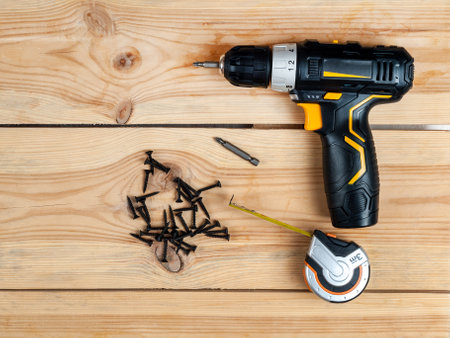Preparing for the Big Day
Moving into your first UK home is an exciting milestone, but it comes with its fair share of organisation and planning. To ensure a stress-free transition, start by creating a moving checklist tailored to your timeline. Notify essential services such as your council tax office, utility providers, GP surgery, and broadband supplier well in advance, so you’re not left without vital connections on arrival. Next, tackle decluttering – the less you move, the easier the process. Sort through your belongings and donate or recycle anything you no longer need; British charity shops are ideal for passing on good-quality items. Once you’ve streamlined your possessions, gather sturdy packing materials like boxes, bubble wrap, and strong tape. Many supermarkets or local Facebook groups offer free or low-cost boxes if you ask around. Don’t forget to label everything clearly by room and contents to help both you and any removal team on the day. By laying this groundwork early, you’ll be well prepared when moving day arrives and can focus on settling into your new British home.
Packing Up the Proper Way
Moving into your first UK home is both thrilling and daunting, but a well-organised packing strategy can make all the difference. Begin by sorting your belongings; separate what you truly need from items that can be donated or recycled. This not only reduces clutter but also saves on moving costs and time. Once sorted, gather sturdy boxes, bubble wrap, and strong tape—British supermarkets and local shops often have spare boxes if you ask in advance.
Labelling for Efficiency
Clear labelling is essential for a smooth move. Mark each box with its contents and the room it belongs to; consider colour-coding labels for added clarity. For example:
| Room | Label Colour |
|---|---|
| Kitchen | Green |
| Bedroom | Blue |
| Lounge | Yellow |
| Bathroom | Purple |
This system speeds up unpacking and helps removal teams place boxes correctly without constant supervision.
Secure Packing for All Weathers
The British weather is famously unpredictable, so prepare for rain even in summer. Use plastic storage bins or double-layered boxes for items sensitive to moisture. Seal boxes securely with waterproof tape, and wrap fragile items—such as crockery, glassware, and electronics—in bubble wrap or thick towels. Place heavier items at the bottom of boxes and lighter ones on top to prevent breakages during transit.
Packing Tips for Fragile Items
- Wrap each item individually, using tissue paper or bubble wrap.
- Fill empty spaces in boxes with crumpled newspaper or soft clothing to avoid shifting.
- Mark boxes containing fragile items clearly on all sides with “FRAGILE” and an arrow indicating which way up they should be carried.
Special Considerations for Moving Day
If rain is forecast, keep a roll of bin bags handy to cover exposed boxes quickly when loading or unloading. Have an essentials box packed last—kettle, tea bags, mugs, phone chargers—to help you settle in comfortably as soon as you arrive in your new UK home.

3. Arranging Transport and Removals
When planning your big move into your first UK home, sorting out how to get your belongings from A to B is a crucial step. The right transport option can make all the difference between a chaotic day and a seamless transition. Here’s a breakdown of the main choices, each with its own British flavour, to help you decide what suits your needs best.
Professional Removal Services
If you want to take the stress out of moving, hiring a professional removal company is a solid choice. Many UK-based firms offer comprehensive packages, including packing, loading, transporting, and even unpacking at your new place. This is especially helpful if you have lots of furniture or fragile items. Look for companies accredited by the British Association of Removers (BAR) for peace of mind—these businesses adhere to strict standards and offer insurance cover. Prices can vary depending on distance and volume, so it’s worth gathering a few quotes before making a decision.
Hiring a Van
For those who prefer a more hands-on approach or have fewer possessions, hiring a van might be the way to go. Major UK rental companies like Enterprise, Hertz, and local favourites such as Arnold Clark offer flexible options ranging from small transit vans to larger Luton box vans with tail lifts. Make sure you’re comfortable driving a larger vehicle and check whether your driving licence covers you for the size of van required. Booking in advance is recommended, especially around weekends or at month-end when demand peaks.
Calling in Favours from Mates
The classic British move often involves rallying friends or family for an extra pair of hands—and maybe borrowing someone’s estate car or people carrier. This DIY option can save money and turn moving day into a memorable team effort (just don’t forget the promise of pizza or a pint afterwards as thanks). Be realistic about what can fit in each trip and factor in multiple journeys if necessary.
UK-Specific Options
In addition to standard removals and van hire, look out for unique UK services like ‘man with a van’ ads—these are often local operators offering affordable rates for small-scale moves or single-item deliveries. Check community boards or apps like Nextdoor and Gumtree for recommendations in your area. Whatever route you choose, ensure your chosen transport method suits both your budget and the scale of your move—planning ahead will help keep moving day running smoothly.
4. Moving Day Essentials
Ensuring your moving day goes off without a hitch in the UK means being well-prepared with all the right essentials. Here’s what you’ll need to keep on hand for an efficient and stress-free move into your first British home.
Must-Have Items for the Big Day
| Essential | Purpose | UK Tip |
|---|---|---|
| Kettle & Tea Bags | Stay refreshed and keep energy levels up; offering tea is also a British moving tradition. | Popping the kettle on for yourself (and your helpers) is a must! |
| Cleaning Supplies | Tidy up before unpacking; tackle any unexpected messes in your new place. | Stock up on antibacterial spray, sponges, bin bags, and loo cleaner. |
| Snacks & Water | Keep everyone fuelled throughout the day. | Sarnies, crisps, and biscuits are classic choices for a quick bite. |
| Important Paperwork | Easily access contracts, ID, new keys, utility info, and contact details. | Store documents in a clear folder or wallet for peace of mind. |
| Moving-Day Toolkit | Tackle quick fixes or furniture assembly as soon as you arrive. | Include screwdrivers (flat-head & Phillips), Allen keys, a hammer, pliers, measuring tape, and spare bulbs – all in UK sizes if possible. |
The UK-Style Moving-Day Toolkit Checklist
- Screwdrivers: Flat-head & Phillips for assembling furniture or tightening fittings.
- Allen Keys: Many flat-pack items require these – check if IKEA-sized ones are needed!
- Pliers & Hammer: For hanging pictures or fixing loose nails.
- Measuring Tape: Essential for checking if furniture fits through doorways common in older UK homes.
- Batteries & Bulbs: Many rentals don’t come with working light bulbs – bring standard bayonet and screw types.
- Duct Tape: Handy for last-minute packing emergencies or securing cables.
- Extension Leads: Older British properties often have limited sockets; this can save time during setup.
A Quick Word on Comforts
The first day in your new home can feel overwhelming. Keep a box labelled “Day One” close by with toiletries, loo roll, towels, chargers, and pyjamas so you’re ready to settle in when the work is done. With these essentials at hand, you’ll be enjoying that first cuppa in your own space before you know it!
5. Settling into Your New Home
Making Your New Place Feel Like Home
Once the last box is inside, it’s time to transform your new house or flat into a welcoming retreat. Start by unpacking essential items—think kettle, bedding, and toiletries—so you can enjoy a brew and a good night’s sleep after a long day. Personal touches like photos, throws, and familiar décor go a long way to making your space feel truly yours. Don’t rush to get everything perfect; take your time to arrange furniture and decorate as you settle in.
Sorting Meter Readings
Before you get too comfortable, remember to record the readings for gas, electricity, and water meters. Snap clear photos with your phone as proof of the numbers on move-in day. Notify your utility providers promptly—this ensures you only pay for what you use from your first day onwards and avoids any billing confusion with previous tenants.
Registering for Council Tax
Council tax is a crucial part of UK home life. As soon as possible, register with your local council so they know you’ve moved in. You can usually do this online via the council’s website by providing your new address and moving date. This helps avoid unnecessary fines and ensures you receive important information about rubbish collection days and local services.
Introducing Yourself to the Neighbours
Building good relationships in your neighbourhood starts with a simple hello. Take a moment to introduce yourself to neighbours when you see them—whether it’s over the garden fence or at the communal entrance if you’re in a block of flats. A friendly chat not only helps break the ice but can also be handy for picking up local tips or recommendations for nearby shops and services.
Final Touches
The first few days in your new UK home are all about settling in, getting organised, and starting to feel like part of the community. With these steps ticked off, you’ll soon find yourself feeling right at home.
6. Post-Move Must-Dos
Update Your Addresses
Once you’ve settled into your new UK home, one of the first tasks is to update your address details. Notify your bank, GP surgery, utility suppliers, and any relevant subscriptions or memberships. Don’t forget to inform HMRC and the DVLA if you drive. Redirecting your post through Royal Mail ensures you won’t miss important correspondence as you transition.
Unpacking Tips for Efficiency
Tackle unpacking room by room, starting with essentials like the kitchen and bedrooms. Use this opportunity to declutter—if something doesn’t fit your new space or style, consider donating it to a local charity shop. Keep a toolkit handy for assembling furniture, and take regular tea breaks—a British moving day tradition!
Recycle Packing Materials
Once you’re unpacked, recycle boxes and packing paper at your local recycling centre or via council collections. Many supermarkets also have collection points for soft plastics and bubble wrap. If boxes are still in good nick, offer them to neighbours or community groups online—a great way to help others and reduce waste.
Explore Your New Local Area
To truly settle in, get out and explore your neighbourhood. Take a stroll to the local shops, discover the nearest park, and introduce yourself to neighbours—often over a cuppa. Check out your nearest pub for a Sunday roast or join community events listed on noticeboards or local Facebook groups. Embracing these small British rituals will make your new house feel like home in no time.


